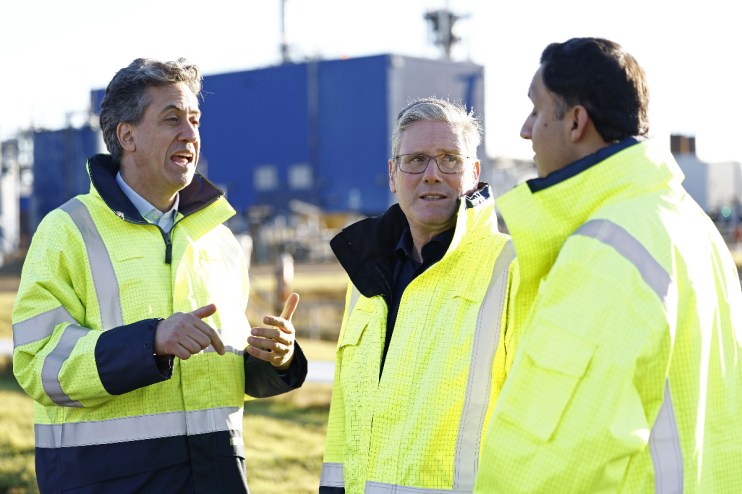GB Energy: Bill criticised as ‘blank cheque’ as MPs debated flagship policy

The government’s Great British Energy bill has been criticised as a “blank cheque” and for having “barely anything in it” as MPs debated the flagship policy in the Commons.
Energy security secretary Ed Miliband introduced the legislation to the chamber on Thursday for its second reading – when the main Commons debate was held – and argued creating a publicly owned company would be a “a crucial tool to bring down prices for our constituents”.
The government has said it will back the proposed firm – which MPs and peers would have to grant Miliband the power to set up – with £8.3bn over the course of this Parliament.
“We have a simple proposition: if it’s right for the Danes, French, Norwegians, Swedes to own British energy assets, it’s right for the British people to do so as well,” he argued.
“And that’s why we fought the election on this crucial principle: the British people should have a right to own and benefit from our natural resources.”
GB Energy, Miliband said, would “invest in and own clean energy projects”, such as floating offshore wind, work with the private sector and serve to “derisk” frontier technologies.
“We want the future to be made in Britain,” he pledged. “Clean energy is the economic and industrial opportunity of the 21st century.”
But shadow energy security secretary Claire Coutinho criticised the bill, saying she feared MPs could sign off on “£8bn of taxpayers’ money for a completely blank cheque”.
The Conservative MP said: “This bill is four pages long. There’s barely anything in it… he’s provided no detail on how this bill could deliver any of his promises, let alone all of them.
“This is a four-page bill in which the secretary of state is asking for £8bn of taxpayers’ money while setting out no investment plan, no figures for the energy that will be produced, no numbers for the energy bill savings or carbon emission reductions, not even a timeline.”
While the Liberal Democrat energy spokeswoman Wera Hobhouse said while she shared Miliband’s “passion and ambition to get to net zero”, she was concerned the company could “crowd out investment, rather than ‘crowd in’ investment”.
And Miliband insisted: “Look around the world at what is happening before our eyes: catalytic public investment, i.e. public investment levering in private investment.
“This whole old-fashioned, free-market, 1980s argument about crowding out just turns out to be wrong.
“Just look at what is happening in America. Why is the money flowing to the United States? In part because of the catalytic public investment.”
The bill cleared its first Commons hurdle when MPs voted in its favour by 348 to 95, with a majority 253. It will undergo further scrutiny at a later date.
